
Life sciences writer Susan Milius has been writing about botany, zoology and ecology for Science News since the last millennium. She worked at diverse publications before breaking into science writing and editing. After stints on the staffs of The Scientist, Science, International Wildlife and United Press International, she joined Science News. Three of Susan's articles have been selected to appear in editions of The Best American Science Writing.

Trustworthy journalism comes at a price.
Scientists and journalists share a core belief in questioning, observing and verifying to reach the truth. Science News reports on crucial research and discovery across science disciplines. We need your financial support to make it happen – every contribution makes a difference.
All Stories by Susan Milius
-
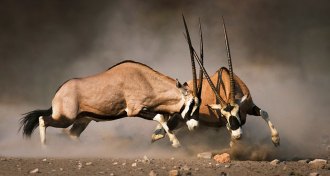 Animals
AnimalsFighting like an animal doesn’t always mean a duel to the death
Conflict resolution within species isn’t always deadly and often involves cost-benefit analyses.
-
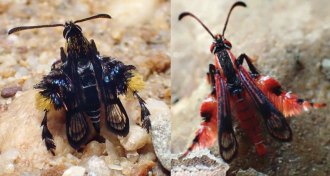 Animals
AnimalsDefenseless moths do flying impressions of scary bees and wasps
Faking that erratic bee flight or no-nonsense wasp zoom might save a moth’s life.
-
 Plants
PlantsNew genetic details may help roses come up smelling like, well, roses
A detailed genetic look at China roses and an old European species shows that there’s a built-in trade-off between color and scent.
-
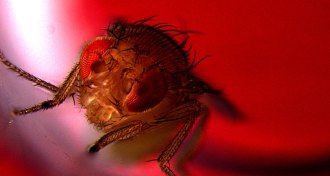 Animals
AnimalsMale fruit flies enjoy ejaculation
Red light exposure made some genetically engineered fruit flies ejaculate, spurring a surge of a brain reward compound — and less desire for booze.
-
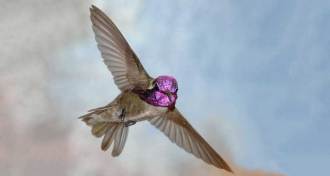 Animals
AnimalsThese hummingbirds aim their singing tail feathers to wow mates
Acoustic cameras reveal how male Costa’s hummingbirds can aim the sound produced by fluttering tail feathers during courtship dives.
-
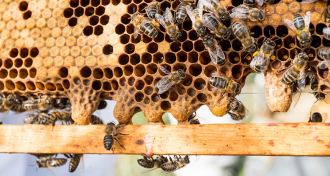 Animals
AnimalsHow honeybees’ royal jelly might be baby glue, too
A last-minute pH shift thickens royal jelly enough to stick queen larvae to the ceiling of hive cells.
-
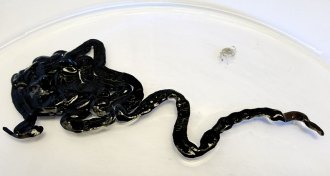 Animals
AnimalsToxins from the world’s longest animal can kill cockroaches
Bootlace worms can stretch up to 55 meters long and ooze toxins that can kill cockroaches and green crabs.
-
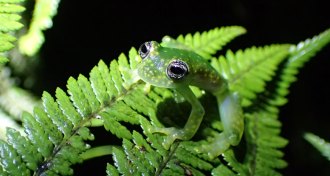 Animals
AnimalsSome frogs may be bouncing back after killer chytrid fungus
Frogs in Panama may be developing defenses against a fatal skin disease, a new study suggests.
-
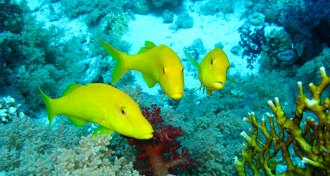 Animals
AnimalsIn a pack hunt, it’s every goatfish for itself
Pack hunting among goatfish is really about self-interest.
-
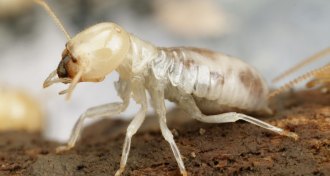 Animals
AnimalsIt’s official: Termites are just cockroaches with a fancy social life
On their latest master list of arthropods, U.S. entomologists have finally declared termites to be a kind of cockroach.
-
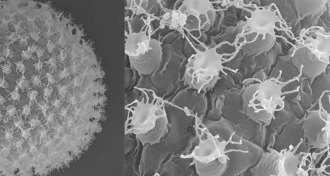 Animals
AnimalsA new species of tardigrade lays eggs covered with doodads and streamers
These elegant eggs hint that a tardigrade found in a Japanese parking lot is a new species.
-
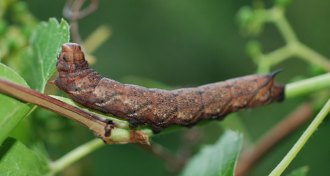 Animals
AnimalsThis scratchy hiss is the closest thing yet to caterpillar vocalization
A new way that caterpillars make noise may involve (tiny) teakettle‒style turbulence.